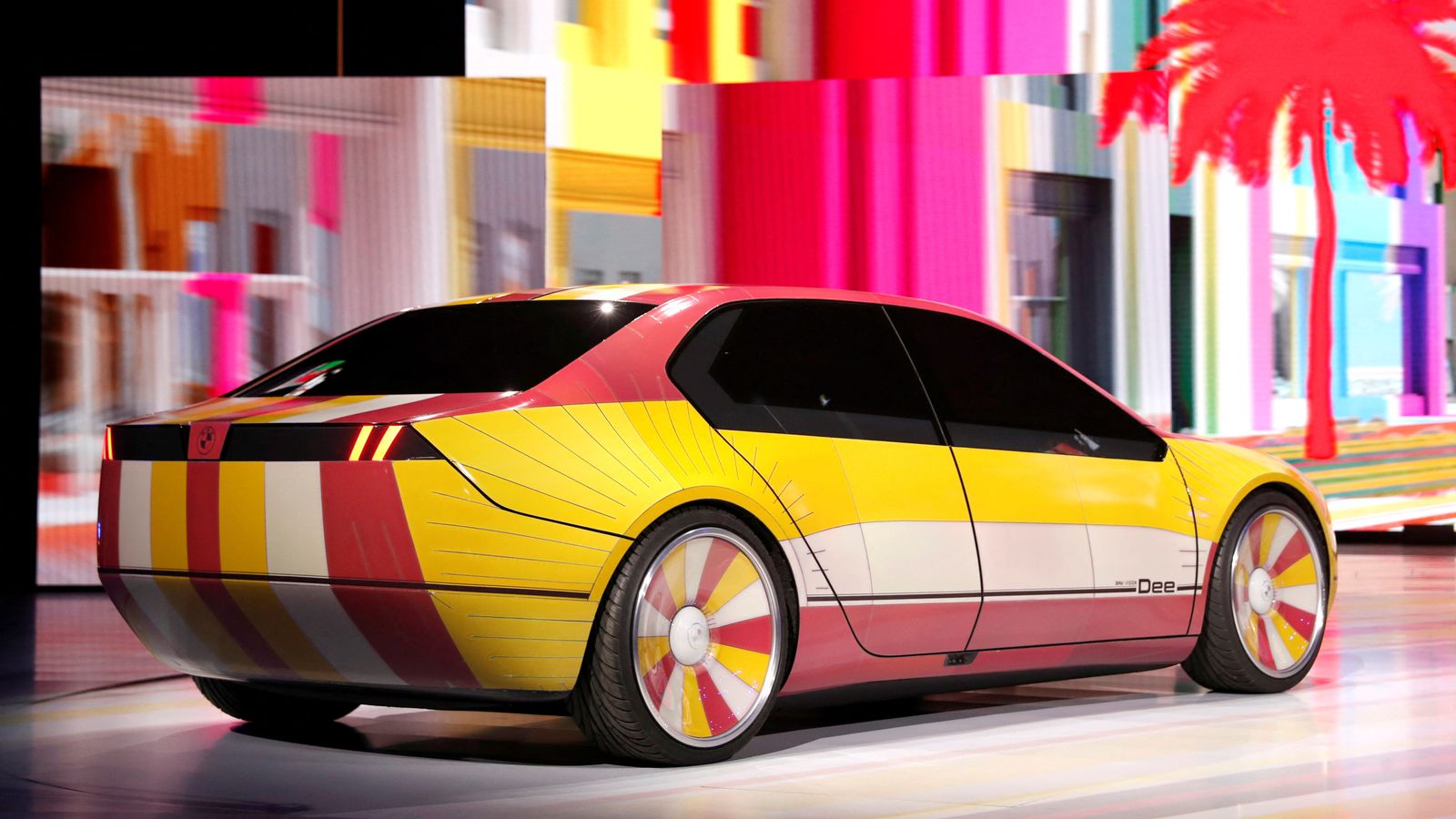Traditional carmakers and tech giants alike are making big moves into the electric vehicle industry at CES.
In a sign of how increasingly crowded the market will become as the world transitions from petrol and diesel, the biggest event in consumer electronics has more floor space dedicated to EVs than ever.
Ahead of the show officially opening at the Las Vegas Convention Center on Thursday, German car giant BMW announced its vision for the future – one that would look right at home in Blade Runner.
The BMW i Vision Dee (the Dee stands for “digital emotional experience”) concept car may appear like a relatively normal saloon, however it comes equipped with an augmented reality windscreen and a voice assistant.
Drivers would be able to use a “mixed reality slider” to tune how much they would want on their windscreen – from familiar data like speed and directions, to projections of virtual worlds (only with autonomous driving, to be clear).
And then there’s the vehicle’s grille, no longer purely for the safe passage of air in and out of the vehicle, but for displaying expressions to those outside – the closest we’ve got to a real-life character from Pixar’s Cars.
In concept, it will work using BMW’s “e-ink” technology, which is employed across the vehicle’s entire body, to let owners digitally repaint it with 32 different colours.
‘The vehicle as a platform is evolving’
Such concepts may sound inherently ridiculous, more science-fiction than science-fact, but such announcements represent an ever-increasing convergence between carmakers and the tech world.
In one of CES’s most notable moments so far, Japanese tech giant Sony made its EV debut, teaming up with compatriot carmaker Honda to show off the Afeela.
According to the head of automotives at electronics heavyweight Qualcomm, which is one of the world’s biggest producers of semiconductors, it’s a sign that the coming years will see the “complete transformation of the car”.
“The vehicle as a platform is evolving,” Nakul Duggal told Sky’s Ian King Live.
Qualcomm reported $30bn worth of semiconductor orders in September, up from $11bn in July, which reflects the industry’s keenness to evolve beyond vehicles simply being used to drive.
If cars are to host more powerful electronics, from augmented reality windscreens to onboard gaming, then more semiconductors are required.
Read more:
Ed Conway: Without these chips, we are in big trouble
Mr Duggal said the vehicle industry was undergoing a “sea change”, where cars are used “just as we might use a television or a PC or a phone”.
Sony and Honda’s Afeela sports more than 40 sensors to detect hazards and enable self-driving, and is tipped to leverage the PlayStation maker’s entertainment heritage to compete with industry leader Tesla, which has integrated video games into some of its models.
In a sign of just how seriously Sony is taking its first venture into cars, the company has broken with tradition by announcing no new TVs at CES this year.
Read more:
The most eye-catching gadgets at CES 2023
Meanwhile, rumours persist of Apple launching its own electric car, having already become a staple of many people’s driving experience through its CarPlay platform.
Two of its rivals, LG and Samsung, announced their own CarPlay-style products at CES, with the latter’s so-called Ready Care working in tandem with its range of wearables to measure a driver’s tiredness.
“The car is becoming this incredible platform,” said Mr Duggal.
“That requires a very close alignment between the semiconductor, the software in the cloud, and a large number of applications and services that are developed not just by the automaker, but clearly by the entire ecosystem.”










